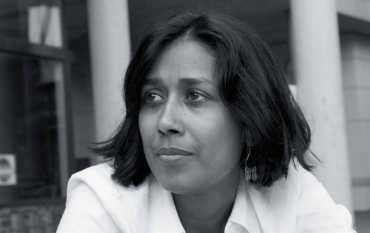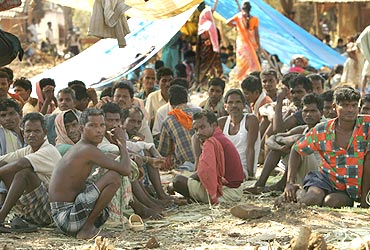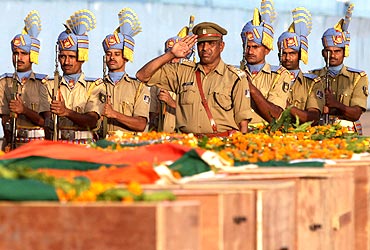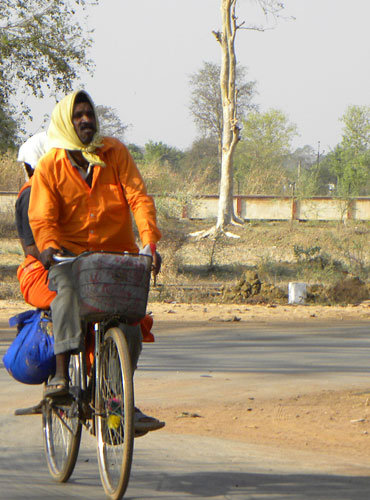
Professor Nandini Sundar who won the Infosys Prize 2010 in social anthropology speaks about the apathy of Indian bureaucracy
Professor Nandini Sundar's passionate study of issues of counterinsurgency, adivasi politics and identities has not only created awareness among people, but has also sensitised policymakers.
Sundar, Head of Department of Sociology at Delhi School of Economics, talks to Sumita Vaid Dixit of Careers360 about her Infosys prize, the bureaucracy's apathy and her third book.
How do you feel about winning the Infosys prize?
Great. I received a call on October 25, some time in the morning from Prof Amartya Sen and members of the Infosys Foundation and they told me that I had won the prize.
It feels good to know such a distinguished jury thinks your work is worthwhile. Now I hope other people will take the issues I study more seriously, such as adivasi rights and the terrible effects of counterinsurgency.
Has the prize changed your life?
No, but it has certainly brought me some recognition among a different group of people than the ones I normally interact with. It has also encouraged me to pursue my research even when things may seem tough.
Apart from using the money for research, one of the things I want to do with the prize money is help in the education of youth in Bastar.
The education model I have in mind is one that will allow these children to learn what is taught in the best schools as well as give them pride in their own culture and history.

What kind of challenges have you had to face?
One of the biggest challenges is bureaucratic ignorance. Some time back, I was at a meeting to discuss studies of alternative systems of dispute resolution and one law school had suggested studying how Chambal dacoits solve local problems.
A bureaucrat from the Law Ministry who was present at the meeting said 'How can you study this. You would then be legitimising the dacoits."
Every researcher ought to have the freedom to study or research any subject whether it is the Naxalite movement or the collusion between big business, politicians and journalists that the Nira Radia tapes reveal.
I have been going to Chhattisgarh for the past 20 years for my research work and now the government is preventing me from carrying on with my work.
They sent some 50 special police to surround me in my field village, so that the villagers would get intimidated. But no government is going to stop me doing the kind of research that I think needs to be done.
Then what kind of research is respected in this country?
Traditionally, the emphasis has been on research that is useful for the government. In the '50s and '60s development institutes were set up to help the government frame policies because a developing country needed research for growth.
But what governments must also understand is that independent research is equally important as it helps to develop an independent stance on the country's problems.
This kind of bias is especially seen in Sociology as it is considered a poor cousin of Economics.

What would be the other issues surrounding research work?
Increasingly, our work takes place in an international context, where we both cite and collaborate with foreign scholars.
We need to develop our own independent questions and style, even as we go global.
A lot of thought also needs to be given to how collaborative research is done across countries to avoid replicating colonial models of authorship and direction.
You have written one book, co-authored the other; is the third in the wings?
I have been planning to convert all my work on counterinsurgency in Chhattisgarh into a book.
I see the book as an opportunity to understand movements such as the Salwa Judum, how they are encouraged by the State, what such movements mean in the context of a democracy, how people's emotions are fashioned by media reports.
To give you an example, when CRPF jawans get killed, it always makes the news, sometimes on the front page, but there is little or no reporting when ordinary adivasis are killed by the security forces.
The country's diversity is its biggest strength, but it is now being seen by the government and others as its weakness.
As a teacher, do you get enough time to conduct field research?
We don't get leave for field work. The university system is structured to understand the needs of scientists who sit in their labs and conduct research.
But we have to go to the field, which may be Mizoram or Karnataka - not all of us can conduct research in Delhi in the evenings or only during the summer vacations.

Do you enjoy teaching?
Yes, very much. But I do get upset when students don't read up and come! (Laughs). But yes, you do see a fair number of students opting for research, even if many go abroad for their PhDs.
Libraries, funding, the experience of independence in a foreign country, and of course, the stamp of a foreign university are the reasons Indian students go abroad for research.
But that doesn't make them any better than those who choose to study in an Indian university.
For example, Jawaharlal Nehru University (JNU) has one of the best History departments in the world, and the foundations for comparative sociology laid down by professors like Andre Beteille, MN Srinivas and JPS Uberoi in DSchool are very solid!
Did you always want to become an anthropologist?
I liked knowing about people's lives and so I took up sociology in Hindu college, before going to Oxford to do philosophy and politics.
Besides, my mother, Pushpa Sundar, who has written on arts policy and philanthropy among other things, was a big influence in this. I remember our mother taking us, my sister, and me when we were just kids, to demonstrations against dowry.
Finally, what would you say has been your big moment?
Finishing my PhD at Columbia was a big moment! It was on the history of colonialism in Bastar. After a PhD everything seems easy.